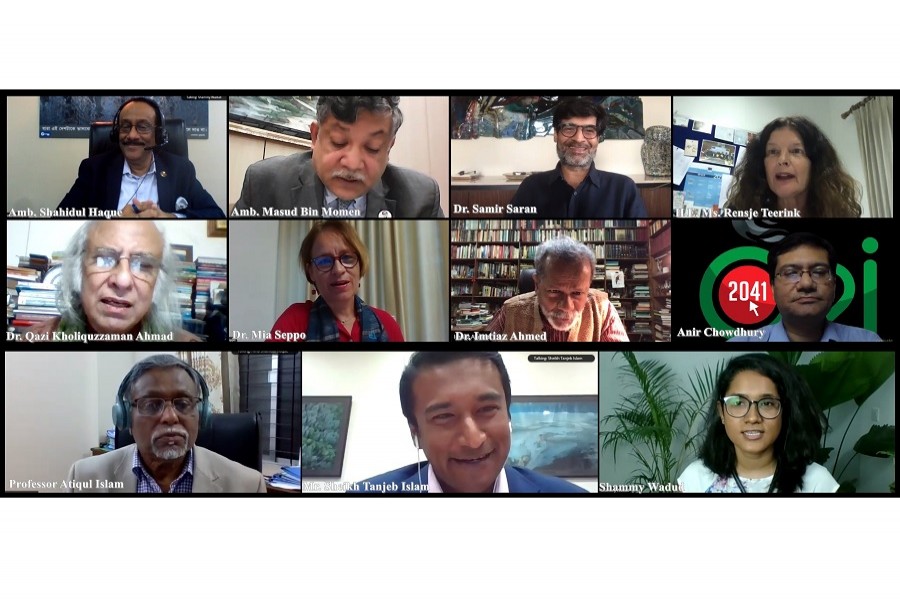Countries like Bangladesh key to democratising UN: NSU conference

Published :
Updated :

Asia’s rising nations, including Bangladesh, need to be in focus in democratising the United Nations, a forum of academics, development practitioners and diplomats recommended at an international webinar on Thursday.
They insisted that civil society organisations (CSOs) and the corporate sector should be incorporated into the process of the ongoing transformation of the UN to make sure that communities, rather than mere nation-states, are served.
They reacted to questions from the audience on how people’s voice would matter in the functioning of the UN, at the two-day webinar on “The UN in Time of People’s Needs: Rethinking Multilateralism”, organised by North South University’s Center for Peace Studies and the United Nations Bangladesh.
Foreign Secretary Masud Bin Momen expressed Dhaka’s frustration in the UN’s failure to ensure the repatriation of the Rohingya people to Myanmar. “We’re deeply frustrated that the UN system would not ensure the repatriation of the Rohingya people,” he said, adding that the government would raise this issue and also focus on post-COVID assistance for Bangladesh.
The diplomat who was also posted at the UN headquarters acknowledged that the increasing involvement of the CSOs in the UN system is irreversible. He added that the Covid-19 had exposed the UN system’s loopholes alongside national inadequacies.
Resident Coordinator of the United Nations in Bangladesh Mia Seppo expressed her views that the civil society voice would be accommodated at the UN only if civic space is there within the member states.
Dr. Samir Saran, President of Observer Research Foundation (ORF), emphasised new champions in ‘young’ Asia to bear the ‘old’ UN and ensure democratisation, saying that apart from China and India, Bangladesh has a strong role to play.
“Future of the UN will be resolved in Asia,” he observed adding that Asian nations could come up with ideas and hopes for future multilateralism. “The UN has to serve the communities instead of serving the nation-states.”
Professor of International Relations at Dhaka University Dr. Imtiaz Ahmed observed that the geopolitics that led to the creation of the UN after 1945 is no longer there. He also regretted that democracy, which was also functioning across the world, is on the decline.
The analyst, however, pointed out that emphasis should be on accommodating persons, instead of an approach to replacing Europe and America with Asia.
Referring to the recognition of Bangladesh’s development performance, Ambassador and the Head of Delegation of the European Union to Bangladesh RensjeTeerink said the country is already a model. Maintaining that the EU supports multilateralism, she said the EU countries are going to organise a global health summit soon.
NSU Vice-Chancellor Professor Atiqul Islam also underlined the importance of the democratisation of the UN, saying that the authority to take decision should be vested with the UN General Assembly.
Moderated by former ambassador ShahidulHaque, also a Senior Fellow at NSU SIPG, the session titled ‘Colloquium on Civil Society Perspective on the Future of United Nations ‘was also addressed by Chairman at Palli Karma-Sahayak Foundation Dr. QaziKholiquzzaman Ahmad, Policy Advisor to Access to Information (a2i) at the PMO AnirChowdhury, Lead of the Asia Pacific Center for Geopolitics and Regional Affairs at World Economic Forum, Geneva, Sheikh Tanjeb Islam and President of the United Nations Youth and Students Association of Bangladesh ShammyWadud.


 For all latest news, follow The Financial Express Google News channel.
For all latest news, follow The Financial Express Google News channel.